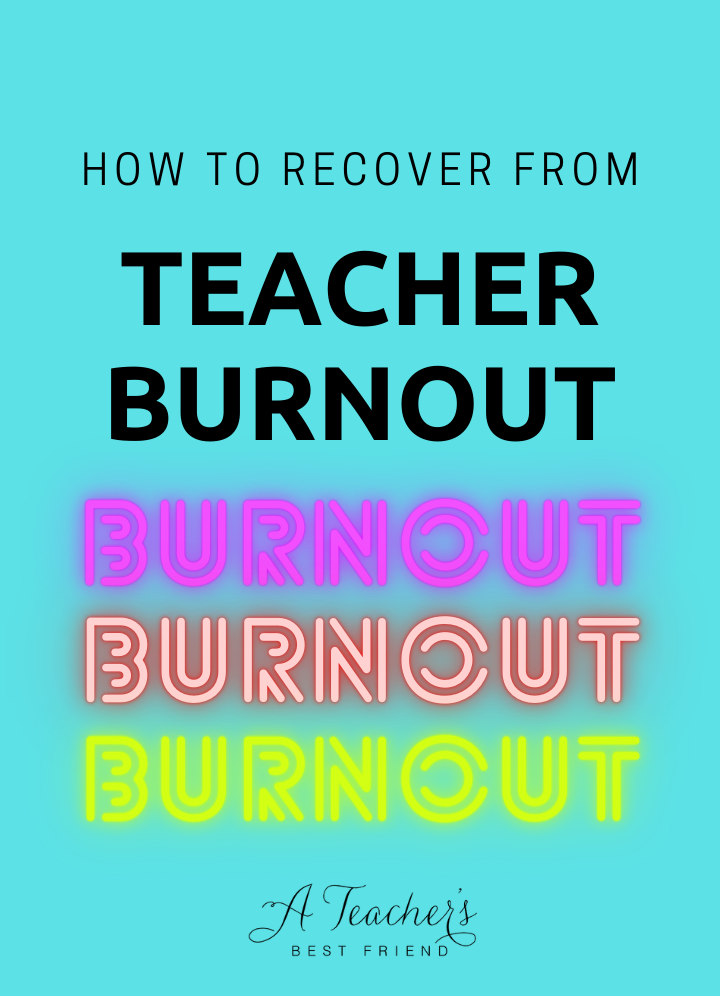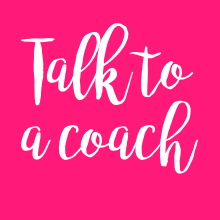
It’s been a really stressful school year, and a record number of teachers are reporting feeling the effects of teacher burnout. As you finish up the school year and begin your summer break, I have some tips for you on how to recover from teacher burnout.
Ah summer. It’s a glorious and much-anticipated time for any teacher in any year. But no summer is more welcome than this summer – the summer of 2021. After coping with the increased demands that the COVID-19 pandemic brought, teachers are breathing a collective sigh of relief and thinking “how in the world am I going to recover from this year so that I can eventually comprehend the idea of going back for another year?!” How will you recover from your teacher burnout?
You aren’t alone – Teacher Burnout is a second pandemic
I actually had a new client ask me last week, “Is it just me? Or are others out there feeling this way?” Let me reassure you… you are not alone. A review of education research shows that teacher burnout is a worldwide pandemic and has been for some time! Stress is the most common reason that teachers leave the profession, and this year, over 50% of the teachers that left teaching named their concerns about how the COVID-19 pandemic was being handled and going back to in-person learning as the main reason for their leaving. Double-whammy! This has prompted some to wisely encourage education and community leaders to worry about teacher loss as much (if not more) than learning loss from the pandemic.
So – NO – you are NOT alone. If you are feeling like you have just clung for dear life to the very thread-bare ends of your rope, you are actually in good company.
Signs of burnout
Let’s first define burnout: Burnout is a state of chronic stress that will eventually lead to physical and emotional exhaustion, cynicism and detachment, feelings of ineffectiveness and lack of accomplishment. While the symptoms listed below is not a complete list of symptoms of burnout, here are the things I see the most from my teacher clients:
- A short fuse: Are strong emotions floating just below the surface? Or are you easily “triggered” or “set off”? Are you more irritable with colleagues and/or students?
- Trouble sleeping even when exhausted: You may find yourself falling asleep quickly, but not able to sleep through the night. Once you are up, your mind is racing about all there is to do. Any unusual sleep patterns could be signs of stress and burnout.
- No motivation: The stress is keeping you going, but you have no real motivation to keep moving at all. You just want to stop.
- Physical symptoms: Sick more often, sick longer, headaches, changes in appetite, hair loss, stomach or bowel problems etc. Any unusual physical symptoms may be worth a double look for whether they might be caused by the stress you are experiencing.
- Increased anxiety or rumination: Can’t let things go as quickly, worrying about things that normally wouldn’t bother you, etc.
- Resentment and anger: Cynicism and resentment over the demands of your job, how you are treated, other people’s behaviors and choices etc.
- Brain fog: Lack of focus or clear thoughts
These are some common symptoms but are by no means an exhaustive list. Your symptoms may be a little different, but you know it when you see/feel it.
How to recover from teacher burnout
Thankfully, as teachers, we do get some cyclical relief from many of the stressors that ail us – SUMMER BREAK! However, summer break is not always a “break” for many of us who may take on summer school, childcare duties, extra jobs, catching up on life etc. I know that there may be different stressors that enter the picture (more on that later in this post), but there is an end to this school year, and thus an opportunity to hit the reset button.
So – now that the light of summer is at the end of this tunnel of a school year, you may be starting to feel some relief and hope that your recovery from burnout is ahead! Here are some ways to recover from teacher burnout:
Physical Recovery
Remember that burnout is chronic stress. Which means, even after the stressors/root causes are eliminated (either because of summer break or with a targeted plan to address them), you’ll still need to physically recover from burnout. Physical recovery can include:
- Sleep! – Intentional bed times, wake times and naps!
- Exercise – Research correlates a good, heart-pumping, challenging sweat with completing the stress “cycle” in our bodies. It doesn’t have to be a ‘workout’ though, it can be a tough hike or a dance party!!
- Restore – Gentle walking, yoga, stretching, gentle swimming/floating, sitting, laying down, and light massage are all excellent ways to restore your physical body.
- Fuel – Take time to prepare delicious, comforting, and nutritious meals for yourself (whole foods are best for your body’s recovery).
- Hydrate – Water is amazing and it does amazing things for your body!! As teachers, we are often dehydrated which leads to bodily stress, fatigue, and brain fog among other unsavory effects.
Emotional Recovery
Emotional recovery is about taking care of your heart, healing from the trauma and toxic positivity of this year and what you experienced, processing your emotions, and letting them work through you. As teachers, we are often so busy that we don’t have adequate processing time. Promising research supports that talking regularly about the emotions you experience daily as a teacher is some of the most powerful resilience-building you can do. Thus, using some time over the summer break to process and heal emotionally, can be extraordinarily powerful in recovering from burnout.
Here are some ways to recover emotionally from burnout:
- Talk about it – Express yourself to a support person – a friend, family-member, coach, or therapist work great. Ask them to simply listen, witness, validate, and let you process it all aloud.
- Journal – Everything you would say to another person (above), you can also write down. Write about what you are experiencing. What is the burnout like for you? How will you recover? Which things are you taking from this experience that will serve you in the future and in your life overall? What do you need to leave behind about this past year?
- Be quiet – Sometimes we just need the silence to do the emotional recovery for us. When you’ve processed what you need to process, let your mind and heart experience quiet.
- Encourage yourself – Take some time to reflect on what you learned about yourself this year. What superpowers did you access this year that you didn’t know were in you? What skills did you gain?
- Consider your emotional “diet” – What does your mind/heart need to consume in order to recover emotionally? Maybe you need to laugh at some funny #teacherlife or #distancelearning memes. Maybe you need some good, soul-encouraging TV shows. There may be other things that you need to cut out (like social media for a little while, or stress-inducing TV).
Cognitive Recovery
Our mental energy can become depleted on the cognitive level making it difficult to make decisions, or desire to grow and change. It becomes hard to be in the present moment, and we spend more and more time in either the past (dwelling and ruminating) or the future (what’s coming). Summer gives you the ultimate cognitive energy recovery because it gives you a BREAK. Here are some ways to recover from cognitive burnout:
- Download – If things keep popping into your mind without your permission (ruminating about the past or worrying about the future especially), it may be helpful to do a mental download or “brain dump”. Write it all out, then close your journal and “put it away” until it needs to be considered again.
- Just be – Take breaks where you don’t do anything – just be. Give yourself as much time in between activities as possible. Give yourself margin to just BE.
Spiritual Recovery
Spiritual recovery is all about reigniting the drive and motivation needed to engage in your life in a meaningful and purposeful way. When you are burned out, you lose touch with your purpose and meaning and you can’t find the will to do anything that feels like a demand. Your spirit – your drive – is what makes even busy days feel fulfilling and meaningful. This is the difference between a “good tired” from working hard at something you love and “burnout tired” which is when the joy and excitement about life is gone.
To recovery your spiritual energy, consider these tips:
- Get into nature – Go for a hike. Put your toes in the ocean. Get into nature however you most like to experience it. This helps ground us and reminds us of our connection to Life itself. We remember how small we are in the BIG picture of life. And that makes our problems feel smaller. Being in nature has been shown to have all sorts of positive mental health benefits.
- Connect to your being – Spiritual energy doesn’t have to do with religion – but it does have to do with what you believe about life, about your worthiness, and about your place in the world. Meditation, prayer, spiritual reading, poetry, are all things that can help you connect to your broader purpose and meaning in life.
- Connect back to your “why” – Many of the reasons that we all got into teaching were not possible this year (at least to their normal extent). So we are feeling dull and empty. Go back through your memory to find moments that inspire, encourage, and motivate you. Write them down. Journal about why you do what you do and why you think your job is important.
- Meet with a coach or therapist – Sometimes we are so far “gone” that we need some external support to reignite this side of ourselves. It’s a sign of strength to ask for help when you need it. And nothing could be more important that reigniting your drive for life!
Relational Recovery
Relational recovery is all about connecting back to your community – your loved ones and friends. Teacher burnout can leave us lonely and isolated, so it’s important to reignite the sense of belonging that we all crave. At first, you may need to be cared for, but when you recover more, you’ll find it fulfilling to care for others too. So here are some ideas for relational recovery this summer:
- Go to coffee/lunch with a friend – Catch up. Get support. Laugh. Give support.
- Engage in meaningful conversation – Meaningful conversations that help you feel connected on a deep level with someone can be truly transformative when recovering from burnout. Share. Be vulnerable. Open up about your burnout or about your thoughts on something important. This accesses and builds your relational energy.
- Allow someone to do something nice for you – Sometimes this can be harder to do than you’d expect, but allowing someone to care for you – in big or small ways – is an important step in recovering your relational energy. Remember that you are loved, you have a support system, and you are not alone.
- Do something nice for someone else – If you are really burned out, you may not be able to do this one right away, but when you feel ready, doing an act of kindness or service for another person can remind you that you are part of a community. Volunteer somewhere with those less fortunate than yourself at this time. Studies show that volunteering improves overall mental health and happiness.
You can do this
As you can see, there are many ways for how to recover from teacher burnout. But recovering from burnout takes time, intention, and a choice. You are in charge of your life. And if you have different demands on your time this summer – as a caregiver, a summer school teacher, a worker in a second job etc. – it may be important for you to look very intentionally at how you plan to incorporate some of these suggestions so that you actually get the recovery you need.
This isn’t about just getting ready for next school year. This is about you. This is about the quality of life you, as a living, breathing human being, deserve. You are not an inexhaustible resource. You have limits. And this year you found those limits, and then went beyond them. So this summer is for you. It’s your time. Do what you need – for yourself.



[…] Cultivating your energy means that you understand how to recharge on each of these levels. Learn more about managing all five energy levels here. […]